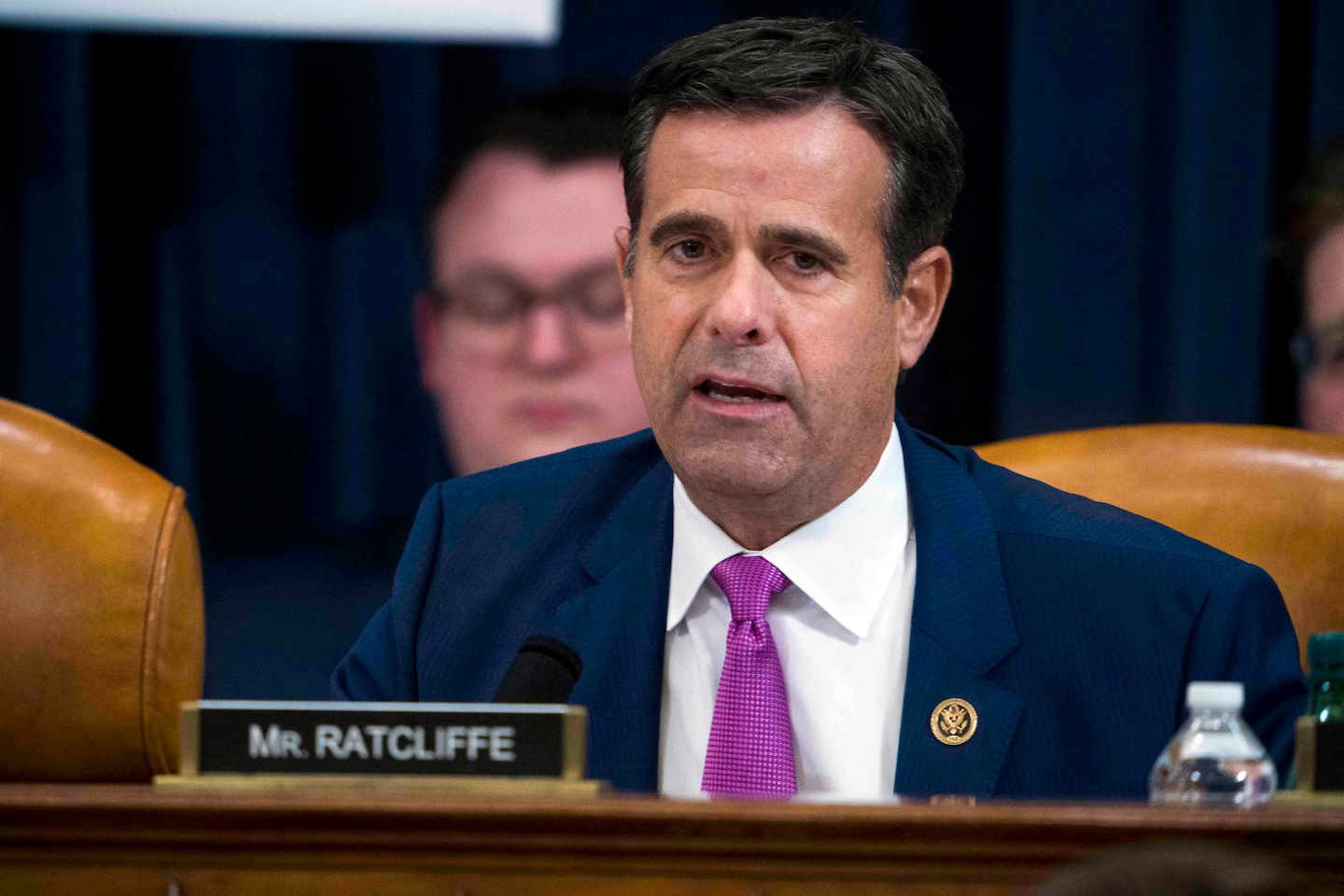Trump will suffocate the intelligence community to get reelected

In 2016, I was fortunate to work for a president and with a director of national intelligence who had no personal or partisan agendas that affected the ability of the intelligence community to fulfill its statutory obligations to keep Congress “fully and currently informed” on national security matters, including Russian interference in our elections.
In 2020, however, the situation is far different, as President Trump has shown utter contempt for the independence, objectivity and apolitical integrity of the intelligence community. And, since he has made no secret of his intention to do whatever necessary to stay in office beyond January 2021, there should be no doubt in anyone’s mind that he will attempt to suffocate the flow of any intelligence to Congress that could upend his ruthless ambition.
Which is why it is so worrisome that Director of National Intelligence John Ratcliffe, in his position for only three months, informed Congress on Friday that lawmakers will from now on receive election-related intelligence primarily through written intelligence products rather than in oral briefings.
Ratcliffe’s stated purpose of seeking to ensure greater clarity, consistency and analytic rigor in the intelligence provided to Congress could be achieved by stronger management, review and coordination of intelligence briefings. His claim that sensitive sources and methods are better protected with the use of written products is specious.
This practice will sharply reduce the ability of members of Congress to raise questions and to gain a fuller appreciation of the nature and intent of interference activities, whether carried out by Russian or other intelligence services.
Just a little more than four years ago, the United States faced a similar challenge — and met it a different way. President Barack Obama already knew the Russians were hacking into the networks of U.S. presidential campaigns, but on the afternoon of July 28, 2016, I informed him in a hurriedly scheduled meeting that Russian President Vladimir Putin had authorized his intelligence services to carry out activities to hurt Democratic candidate Hillary Clinton and boost the election prospects of Donald Trump.
“Mr. President,” I said, “it appears that the Russian effort to undermine the integrity of the November election is much more intense, determined, and insidious than any we have seen before.”
My reference to the unprecedented scale and scope of Moscow’s efforts to harm the integrity of the election quickly riveted the president’s attention. It also triggered the immediate concern of the others in the room — including Chief of Staff Denis McDonough, who asked, after I was done speaking, “What are you planning to do on the congressional front?”
I thought for a brief moment and then recommended that the most sensitive intelligence be limited initially only to the “Gang of Eight” — the bipartisan leadership of both houses of Congress as well as the chairs and ranking minority-party members of the Intelligence Committees. I was concerned that briefing Congress more broadly on fragile intelligence sources and methods could lead to damaging leaks, harming our ability to learn more about Russian plans and capabilities.
Moreover, some U.S. persons affiliated with the Trump campaign appeared to be caught up, wittingly or unwittingly, in the Russian scheme, and I knew that the politically volatile nature of such information could have been used by Democrats to harm the Trump campaign.
In my more than 30 years of government service, I had witnessed some members of both political parties engage in unethical behavior by misusing intelligence, and I wanted to avoid that happening on the eve of a closely contested presidential election. Obama understood my concerns, but he said he wanted Congress briefed as appropriate and as required.
Congress was already on summer recess at the time, but three members of the Gang of Eight — Democrats Rep. Nancy Pelosi (Calif.), Rep. Adam B. Schiff (Calif.) and Sen. Harry M. Reid (Nev.) — made arrangements to receive the briefing in August in person or by secure phone. The other five — one Democrat and four Republicans — were briefed individually in secure congressional conference rooms on Sept. 6.
To underscore the sensitivity of the intelligence, I personally conducted all the briefings. Most of the eight immediately recognized the gravity of Russian efforts. A notable exception was Sen. Mitch McConnell (R-Ky.), who insinuated that the CIA was working with the Obama administration to prevent Trump from getting elected.
We conducted many subsequent briefings for members and staff in the run-up to the Nov. 8 presidential election. We made a determined effort to prevent damaging disclosures, guard the privacy rights of U.S. persons and prevent the politicization of intelligence by aggressive partisans.
Trump and his team are taking a radically different approach toward Congress. Ratcliffe’s strong record as a Trump defender makes it highly likely that he is bowing to White House pressure to stifle the flow of intelligence to Congress that might be detrimental to Trump.
As a result, it will be up to other leaders of the intelligence community as well as members of Congress to push back aggressively against the authoritarian whims of Trump. The oath they swore to the Constitution of the United States demands it.
Watch Opinions videos:
Read more:






